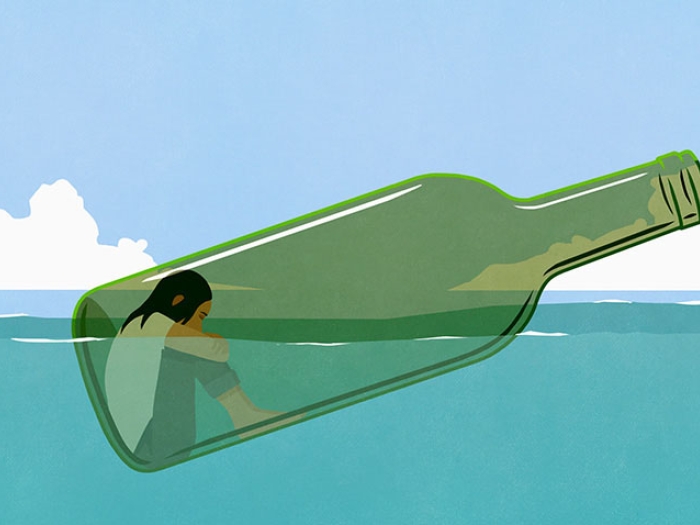A month without alcohol offers a chance to examine drinking habits and recuperate from the damaging effects of beer, wine and liquor.
7:00 AM
Author |

Now that the spiked eggnog and Champagne are gone, the new year offers a convenient opportunity to seriously look at drinking habits and curb excessive drinking.
Which is why many people will make "dry January" a part of their New Year's resolutions.
LISTEN UP: Add the new Michigan Medicine News Break to your Alexa-enabled device, or subscribe to our daily audio updates on iTunes, Google Play and Stitcher.
The concept, which encourages participants to give up alcohol for the month, was formally established as a public health campaign several years ago in the United Kingdom.
But it's popular in the United States, too, where some call the annual event Drynuary or sober January. Stories of first-person experience and tip sheets with advice have helped spread the word.
"Education is an important step in stopping drinking," says G. Scott Winder, M.D., an assistant professor of psychiatry with the Transplant Center at the University of Michigan.
Some benefits of quitting alcohol include better sleep and weight loss, among other health benefits.
A small study at University College London tested the effectiveness of the monthlong fast by comparing liver fat between 10 abstainers and four people who continued to drink. Among the nondrinkers, liver fat (the precursor to liver damage) dropped an average of 15 percent.
Too much fat on the liver damages cells, causes inflammation and impacts the liver's myriad functions. That inflammation, or alcoholic liver disease, may progress to cirrhosis over time.
Monitoring alcohol intake
Dry January may also bring awareness to the amount a person drinks, Winder says.
Suddenly, the recycling bin is lighter each week without the empty liquor or wine bottles. A paycheck might stretch further because a favorite bar or carryout is avoided.
MORE FROM MICHIGAN: Sign up for our weekly newsletter
And because drinking stops completely, it's easy to notice the difference.
Winder supports the use of smartphone apps that track drinking habits, such as DrinkControl and Saying When, but he notes they rely on self-reporting, which leaves room for error.
"Once you start drinking, you get hazy and you can't remember how much you drank, so the accuracy is questionable," Winder says, adding that people tend to have misconceptions about what constitutes a standard drink size.
After all, it isn't about the size of the drink; it depends on the alcohol content of the beverage. A typical 12-ounce beer has about 5 percent alcohol, while 1.5 ounces of vodka contains 40 percent. Five ounces of wine has 12 percent alcohol.
"I had a potential transplant patient who thought drinking a pint of alcohol in one night was normal," Winder says. "That's 10 standard drinks or a week's worth of alcohol in one night."
Current moderation management guidelines advise that men consume no more than two alcoholic drinks per day. For women, it's one drink or fewer.
Small changes to reduce drinking
Cutting out drinking for a month may seem like too tall a hurdle for some, Winder says.
"Human behavior change takes place in stages and requires patience and self-compassion, so if people put brutal expectations on themselves — like 'I've got to stop or else' — sometimes they can get in their own way," he says.
SEE ALSO: Do You Have a Drinking Problem? 11 Warning Signs to Know
Smaller steps might need to come first.
Says Winder: "What we know about human habit is that sometimes if a person makes small favorable changes, even unrelated ones like what time they get up in the morning, it can help them make additional changes."
That progress, he notes, can supply the motivation for bigger changes — including a month without alcohol.
To schedule an appointment with Michigan Medicine's Hepatology Program to discuss liver health issues, call 888-229-7408.
University of Michigan Addiction Treatment Services offers a comprehensive range of services to help treat mild to severe substance use disorders. To schedule an appointment, call 734-764-0231.

Explore a variety of health care news & stories by visiting the Health Lab home page for more articles.

Department of Communication at Michigan Medicine
Want top health & research news weekly? Sign up for Health Lab’s newsletters today!





